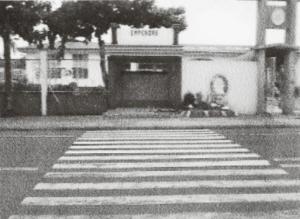
Joey Salceda
LEGAZPI CITY — Bicol is making a big noise over the South Luzon Expressway (SLEx)issue because most of the travelers are the lynchpin of the regions micro and small enterprises (MSE) which account to almost all businesses in Bicol, Albay Gov. Joey Salceda said.
Salceda said his strong opposition to the proposed SLEx toll hike was anchored on the fact that “viajeros and compradors” (travellers and traders) were the key players or the binding forces in rural markets, representing 99 percent of businesses in the region.
Bicol travelers and traders using vehicles accounts for only 15 percent of the total vehicular traffic at SLEx and Albay is estimated at four percent.
Asked why he became the prime mover against SLEx toll hike, Salceda admitted that it should be Batangas and Quezon provinces that should be at the forefront of this cause but Bicol would be economically affected.
He said the four percent actually translates to P400 million a year and this becomes big when compared to the province nominal aggregate household income of P18 billion using 2006 Family Income and Expenditures survey (FIES).
Using only the incremental impact of the approved toll hike (four percent of P9.8 billion less four percent of P2.7 billion), this represents a net resource transfer from the provincial economy of P280 million, although small it represent a third of the provincial budget of P920 million a year.
“To me as a governor is mandated to manage local economic development effort to reduce poverty, the revenue lost due to the toll fee hikes is a huge resource outflow that could be saved and retained in our local economy, ” Salceda said.
The money could be used by our households for their basic needs and by small businesses to invest. It is quite an effort to raise revenues or to attract new investments, he said.
“We are all for infrastructure modernization. But for whom? And at whose expense? ” Reports have it that once a Temporary Restraining Order (TRO) is issued by the Supreme Court(SC) against SLEx this would send negative signals on the country’s policy predictability and undermine its attraction as an investment destination.
Salceda, said it is optimistic that his petition for a TRO would be granted because: the STOA joint venture was not subjected to procurement procedures- it was neither bidded out or even Swiss-challenged; and the toll was not subjected to notice and hearing.
The former Arroyo economic adviser said: “It is the judgment call of the investor to take the intrinsic risks as a consequence of such utter lack of transparency behind such shocking quadrupling of rates. Common sense would easily tell you that such lethal combination would trigger a public outcry. “
Salceda said in the six cases pending at the SC, the TRB is represented by Department of Justice and PNCC by Office of the government Corporate Counsel.
TRB is the first party to the STOA that stipulated the toll fee per km with formula for inflationary adjustment, who then represents the people, the consumers, the motorists, the rural viajeros, the farmers in all of this, he said. (PNA) RMA/LQ/MSA/cbd

